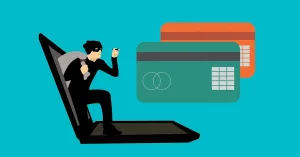Social media is one of the most effective forms of digital marketing and branding. As a small business, hosting social media accounts on the most popular sites is almost necessary for your growth. It’s a great way to reach new customers and check in with your repeat buyers. However, it’s not all sunshine and roses for small businesses on social media.
When a good thing comes along, there are always going to be those who attempt to take advantage of it. Scammers and fraudsters are not uncommon on social media sites, and if they don’t target you, they will try and target your customers. Learning about how these scammers operate will keep you one step ahead of any suspicious behavior you encounter. In this post, you’ll also learn how best to protect your business against the most common scams, and frauds on social media.
What are Social Media Scams?
In this risky business, prevention is always much easier than cure, and you must know how to spot a scam to avoid it. As a small business, your data and account information are very valuable to scammers. If you ’have worked hard to build a strong following, fraudsters will try and take advantage of that.
The main objective of a scammer, be it on or offline, is to take something from you. That may be your data, which they then sell to other third parties. More commonly, it can be straight cash that they persuade you to give to them, through untraceable payment methods on sites like CashApp, or in the form of gift cards.
They will most often pose as someone you can trust. For example, as a key figure at a government agency, or as a potential business partner. By offering you something in return for your cash that is almost definitely too good to be true, these scammers create a sense of time running out, to convince you to pay up quickly. It is highly likely that if you push back, these scammers will become incredibly intimidating, and will attack your business’s good standing. They will try and scare you into doing what they want, by using any previous correspondence you have with them, or threatening legal action.
The Most Common Social Media Scams
Let’s take a closer look at just a few of the most popular methods social media scammers and fraudsters use:
Imitation Accounts: If your logo is widely available, which it likely will be as a small business on social media, it will be easy for scammers to replicate your account. They will often do this by generating a username that is only one character different from that of your small business. Then they can reach out to your customers, exploiting the trustworthy brand you’ve created, to convince them to hand out information, or money.
Fake Accounts: As above, scammers can create accounts that look incredibly genuine, for just about any kind of business. They may approach your business with a fake invoice, for anything from pens and pencils in your office, to your marketing strategy. Scammers will send out thousands of these fake invoices, hoping that the circumstances will align for one small business to take the bait. These scammers are assuming that your business may not have proper forms of communication between you and your employees and that you’ll just pay up to avoid any trouble.
Directory Listing Scams: Sometimes scammers will approach you as if they are a genuine business, looking to make a mutually beneficial deal. As a small business striving for success, scammers assume that you’ll be willing to do anything to get your name out there. By promising to get your business listed or advertised on a non-existent directory, they then behave as if they have the grounds to charge you a hefty fee for this fictional service.
In Your Comments: If scammers are approaching your customers, they may also try and take advantage of those they’ve already targeted. By posting in your comments, they will attempt to lead former victims into another scam, often by promising that they can help get stolen funds returned. This is incredibly common if your small business operates in the tech or security niches.
For a more comprehensive list of social media and small business scams, check out the FTC’s guide here. However, be aware that there are no limits to the methods social media scammers will use to target your business. Since there is such a variety in the ways scammers will approach you, keeping an eye out for the common tell-tale signs is a must. But, there are still a few more things you can do to ensure the best protection for your small business on social media.
How to Protect Your Small Business from Scams
- Be Wary of Random Interactions
As a small business on social media, it’s important to interact with your users to consolidate branding and ensure growth. Scammers know this and will reach out to you in ways that appear harmless, perhaps even posing as one of your customers. If a customer does want to sort out a problem over social media, make sure you ask for their order number or other verifiable information.
- Instate Proper Protocols and Systems
It may only be you running your social media account. This is what fraudsters are hoping for, as you won’t have anyone to run fake invoices by, and you have full control of your finances. In general, you should never do business over your social media accounts. Scammers are looking for a quick buck, so sending them through “proper channels”, while you call your bank, who will advise you whether a transaction is suspicious, will help you know who to block.
- Consider Your Security
It may seem basic, but you should make sure the passwords for your social media accounts are highly secure. Random strings of numbers and letters are a great choice, especially if you have a password manager. Change your passwords regularly to stay safe, and never provide them to anyone who doesn’t require them. Do not click on any link that looks suspicious, and do not offer anything beyond your basic contact information to those looking to reach out to you. If you do have a social media manager or other employees who are in charge of your online presence, make sure they’re aware of what to look out for.
- Do Not Underestimate Scammers
Since scammers are so morally corrupt, it can be easy to believe you have the upper hand and know what to look out for. However, social media scammers are very creative, and their methods are constantly evolving. Just because they do not approach you in one of the ways listed above, does not mean they’re not trying to pull the wool over your eyes. Remember, there’s no low they won’t sink to, and they will try anything to get your money or information.
How to Protect Your Customers from Scams
- Keep Your Customers Informed
You may think the best method when it comes to scammers, is to simply ignore them and they’ll go away. However, it won’t ruin your social media branding if you give your customers the low down when you spot scammers on your page. Letting buyers, or potential buyers, know specifically what to look out for will help protect them, and hopefully, deter potential scammers with your vigilance.
- Make your Contact Information Clear
Customers will be far less likely to fall for scams related to your small business if they can verify your contact information easily. Providing your usernames, and support email, on all of your social media pages is always useful to customers. Just make sure you use an email host with a good spam filter, so any scammers that may try and contact you are quickly filtered out.
- Block and Report Known Scammers Immediately
The users on your social media pages can be incredibly helpful in bringing potential scams to your attention. As soon as you know of an account that a scammer is using, make sure to block them on whatever social media you’re using, so they cannot interact with your small business’s accounts. Reporting their usernames to Twitter, Instagram, Facebook, YouTube, etc. may also help remove their current account for good. However, scammers are resilient, and will usually come back. This is why it’s so important to keep your customers informed, and ready to block any scammers that try and target them.
What to Do if You’ve Been Scammed…
Scammers have been around since the dawn of the internet, and as fraud seems to be such a lucrative “business”, they probably won’t be going anywhere anytime soon. Defense against scams comes from knowledge of the methods and techniques scammers use. Make sure your employees and customers are well equipped to spot scams. But these preventions don’t always work, and thousands of people fall victim to scams every single day.
If you or one of your customers do accidentally engage in a scam, the quicker you seek help, the more likely it will be that you can retrieve stolen funds or personal information. Only complete transactions through reputable, and traceable methods, i.e., those that you provide to your customers at your small business’s checkout. This way your bank will be able to recall any outgoing payments that shouldn’t have been made. You may also like to complete the FTC fraud reporting procedure, and alert your attorney general to the scam, to prevent anyone else from losing out in the future.
Sources:
https://www.ftc.gov/business-guidance/resources/scams-your-small-business-guide-business





















Add comment